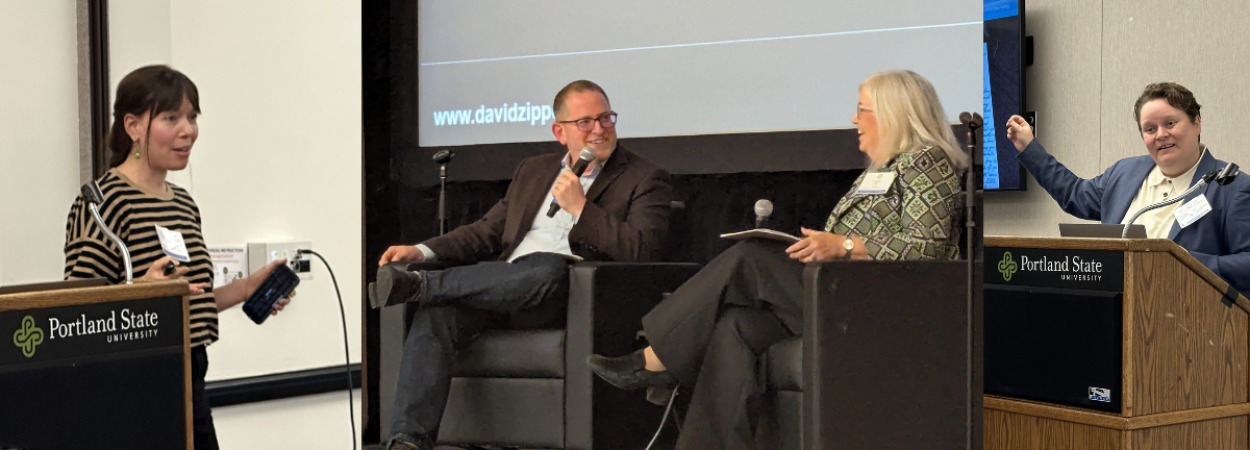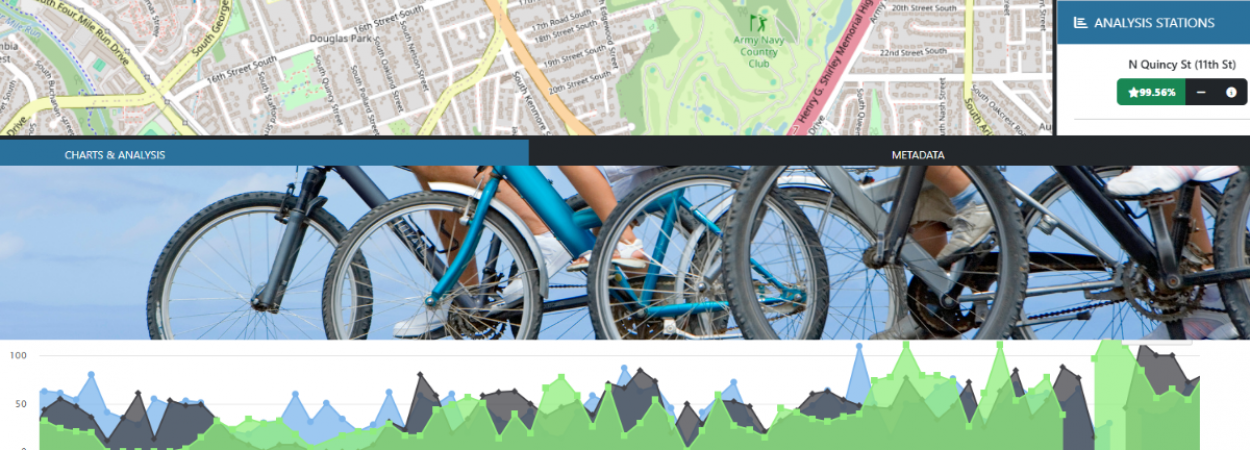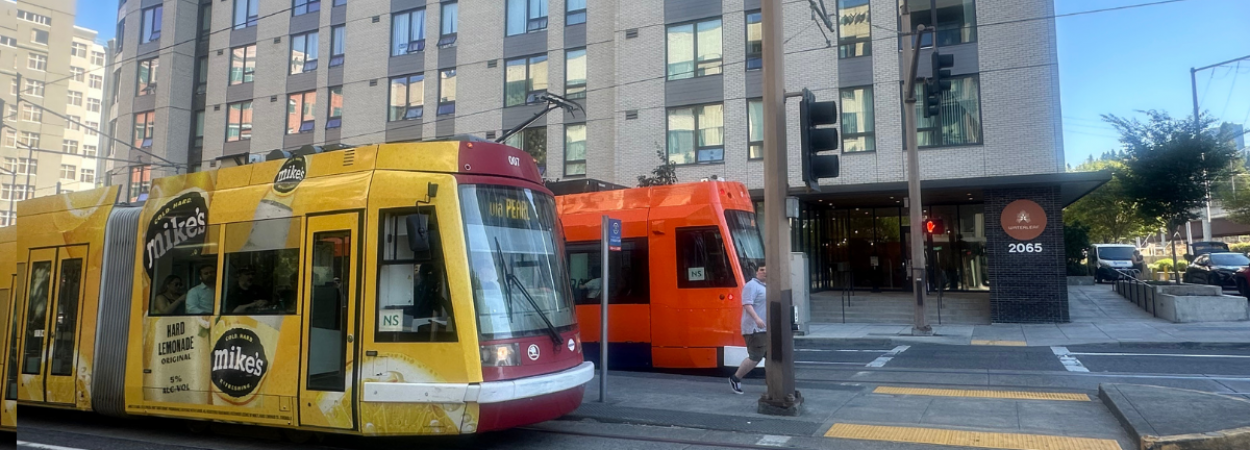 |  |  |

The 2025 PacTrans Region 10 Transportation Conference was held at Portland State University on October 10, with attendees from all over the Pacific Northwest. The conference drew a mixture of transportation researchers and practitioners, with a theme of Connecting Communities: Improving Mobility under Uncertainty.
Sessions on smart mobility analytics, human-centered mobility, and innovations for infrastructure resilience offered in-depth looks at various projects and initiatives around the region. A series of Lightning Talks showcased a variety of innovative projects to enhance travel, and an afternoon poster session allowed students, as well as professionals, to share their work with interested colleagues.
Check out some photos from the conference.

BikePed Portal, the national non-motorized count data archive housed at Portland State University (PSU), provides a centralized standard bicycle and pedestrian count database which includes automated and manual counts from across the country. BikePed portal, as a paid service, also offers a suite of custom tools and products – with more features being developed all the time.
The newest feature added to BikePed Portal is Explore Plus, a robust dashboard that allows users to conduct a wide range of data analyses.
Interested in learning to use this tool? Log in to BikePed Portal, or request a BikePed Portal account if you don't have one, and follow along with this video t…
Read More
We're proud to announce Portland State University's transportation scholarship recipients for the 2025/26 academic year! Scholarships are awarded by the Transportation Research and Education Center (TREC) at PSU, as well as by local transportation organizations. These awards reflect the excellence and impact of transportation students at PSU, whose work reaches beyond the classroom to impact the daily lives of real people in and around our region. Learn more about each scholarship winner below, and join us in congratulating these students on their outstanding accomplishments in transportation.
Each year, through our Initiative for Bicycle and Pedestrian Innovation (IBPI) program, TREC offers a range of scholarships to assist students pursuing equitable, sustainable, and multimodal transportation. Four PSU students were awarded TREC scholarships for the 2025/26 academic year: Grace Alston, Jesus Mendoza, Elias Peters, and Gabr…
Read More
Afroza Hossain Misty graduated from Portland State University in 2024 with a Masters of Urban and Regional Planning (MURP) degree. She now works as an Associate Planner for the City of Columbia, South Carolina. During her time at PSU, she was a student employee of PSU's Transportation Research and Education Center (TREC), where she contributed to transportation research projects by managing survey packaging, online data entry, and data validation processes. She also served as a Mayor Policy-Innovation Fellow for the City of Beaverton, Oregon in 2024.
In my current role as an Associate Planner for the City of Columbia, SC, I get to wear a lot of hats, which makes the work really exciting. I’m the point of contact for our active transportation initiatives, so I manage projects like quarterly bike…
Read More
New research from Portland State University’s Transportation Research and Education Center (TREC) shows that transit-oriented developments (TODs) in the Portland metro area generate far fewer car trips than standard estimates suggest—especially at sites that include affordable housing.
A 2025 report, "Portland Metro Transit-Oriented Developments (TODs): 2024 Resident Survey Findings (PDF)," builds on a long-running PSU study tracking TOD residents since 2005. Led by Nathan McNeil, Jennifer Dill, and Kyuri Kim, the research surveyed residents at TODs built between 2018 and 2023 across eight Oregon cities: Portland, Beaverton, Cornelius, Milwaukie, Gresham, Tigard, Hillsboro, and Happy…
Read More